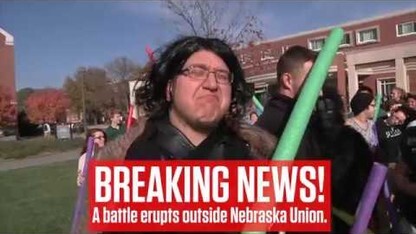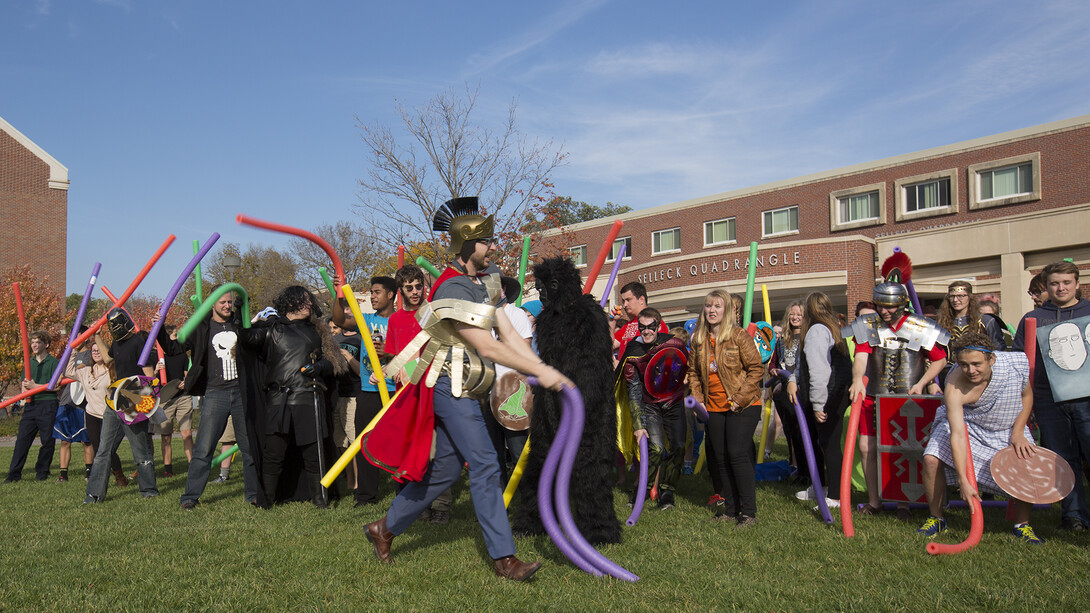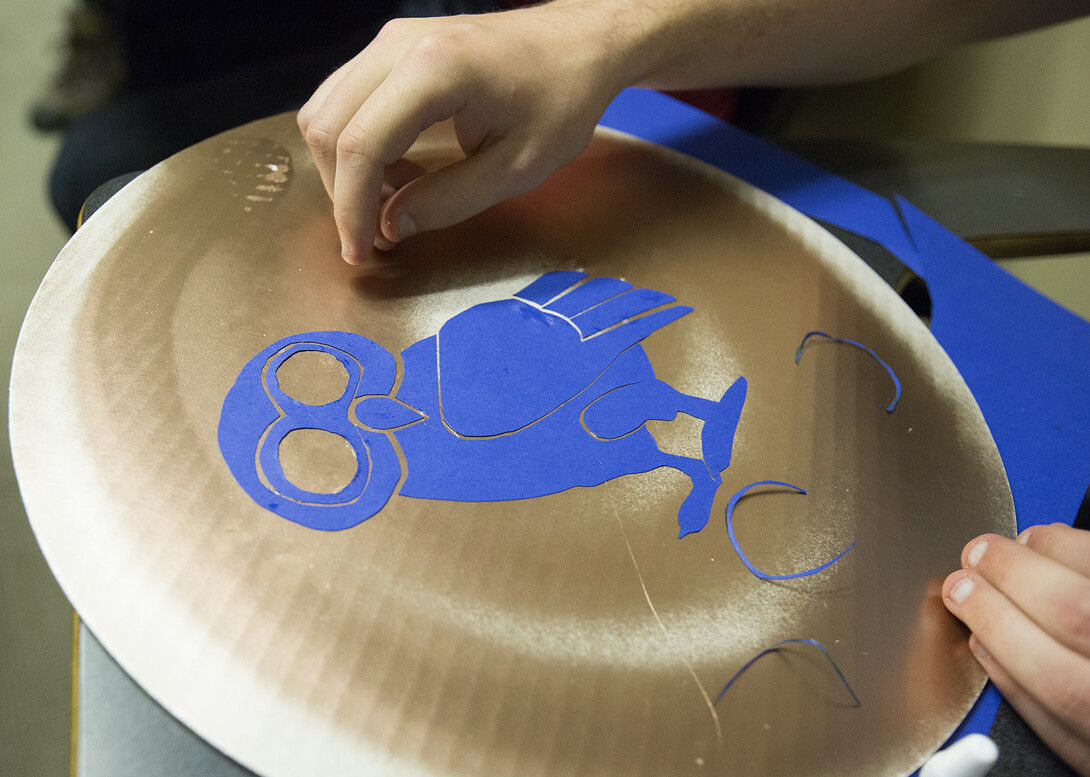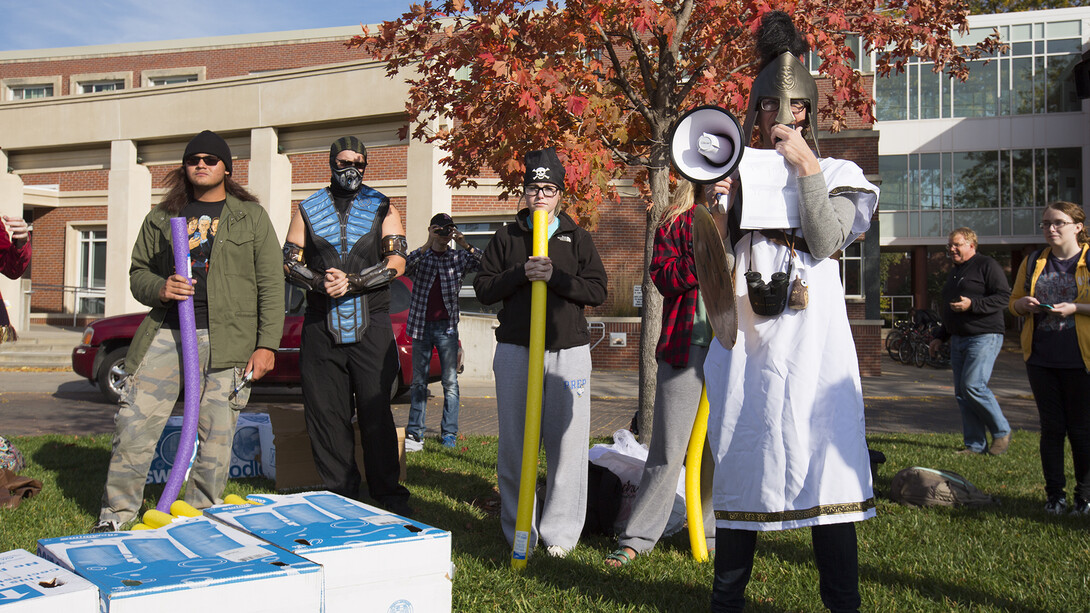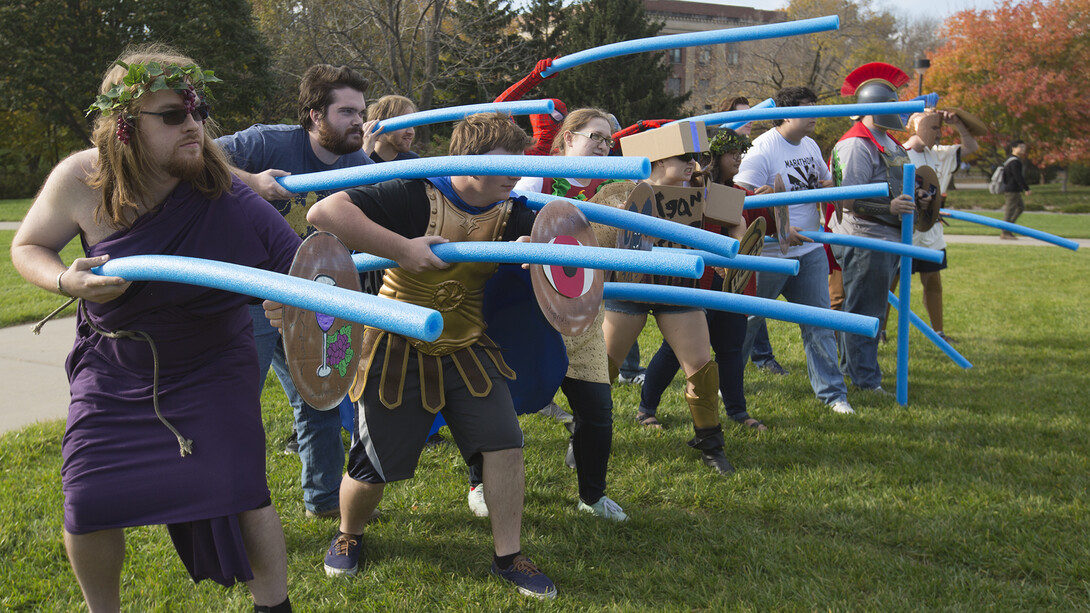
The study of ancient warfare at the University of Nebraska–Lincoln is advancing from classroom lectures to full-scale outdoor reenactments.
For the second year, the Department of Classics and Religious Studies will present a simulated battle from the classical world on the green space north of the Nebraska Union. The event, which will feature Greek armies taking on Persian invaders in a recreation of the 490 B.C. Battle of Marathon, is 3:30 p.m. Oct. 31.
This transition from lectures to reenactments has been led by Sarah Murray, assistant professor of classics and religious studies, who started teaching Classics 245 — War in the Classical World when she came to Nebraska in 2012.
“Last year when I taught ancient warfare for the second time, I decided to find a way to make the class more engaging,” Murray said. “My first time through, it felt so dissatisfying, that I was just teaching ancient history, lecturing, making students write papers about the lectures and memorize facts.
“I thought putting students into battlefield simulations, having them make decisions like a general and seeing the repercussions of those decisions, would be a more effective form of teaching.”
To transport Nebraska students to the ancient battlefields, Murray created a series of custom board games, integrated a few select roleplaying video games, and launched the annual full-scale reenactment. Overall, the class covers 10 key battles between the 1200 B.C. to the 400 A.D.
Each week featured one specific battle. Class sessions featured a battle briefing on the armies, landscape and important strategic concerns followed by students playing out the battlefield simulations. Students also wrote weekly reflection papers about the battles and what they learned.
“I created and picked games that would be entertaining but were grounded in ancient sources,” Murray said. “They offered real situations faced by these ancient generals and the students were challenged to determine if the battles were predetermined or if other outcomes could have happened.”
The fall 2015 class culminated in the full-scale reenactment of the 479 B.C. Battle of Plataea, which was the final fight during the second Persian invasion of Greece.
“The class does a really great job of covering a very broad range of these battles,” said Micah Zetocha, a classics and religious studies major. “Dr. Murray’s way of teaching this course is really excellent.
“It would be one thing to just watch videos of battle simulations or other reconstructions. But, to get our hands on the different armies and manipulating variables to see exactly why strategies won or why we weren’t able to win in the same exact way was really valuable.”
The full-scale reenactments are open to participation by the campus community and public. Students within classics and religious studies courses primarily act as the Greek armies in the simulations, while members of the public participate as Persians. Faculty from within the department lead the events, guiding the army movements through scripted narration to simulate exactly what happened on the ancient battlefield. Prizes are also awarded to participants for such things as shield and costume design.
“The reenactment battles are so much fun and educational,” said Dorothy Elsken, a classics and religious studies major who won best shield design in the 2015 battle. “By participating, you get a real feel for the scope and chaos of a real battle. And, you get to see how specific maneuvers resulted in a victory.”
Marathon was selected this year as it was the first military use of a pincer movement, which features a weak, retreating center force that draws in an enemy army, with strong flanks that are used to surround the advancing troops. At Marathon, the Greeks performed the pincer movement — it is unknown if the maneuver was planned or accidental — and defeated the larger Persian force.
“The whole idea of these simulations is to have fun while you are learning about the ancient world,” Murray said. “It’s also a great way to encourage students to take classes that are not totally pursuant to specific career paths and possibly become more curious about other class offerings at the university.”
For more information about Nebraska’s classics and religious studies program, click here.
